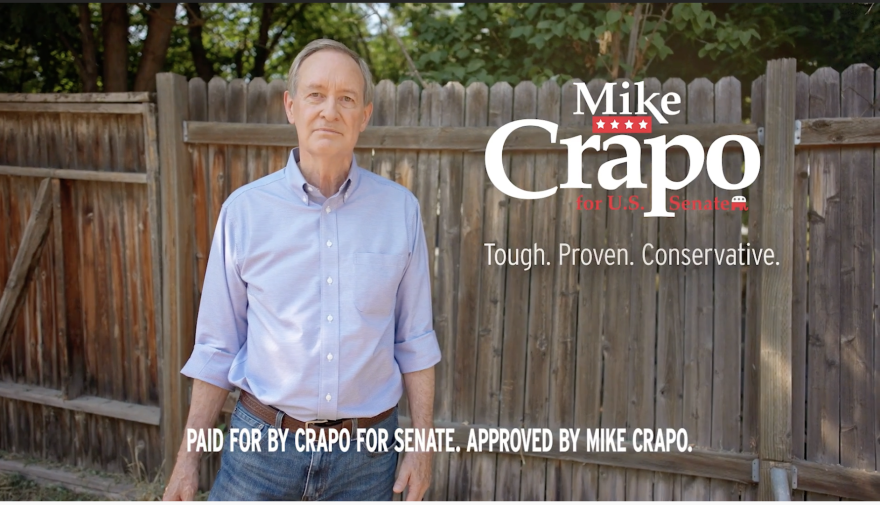News brief
Elections are approaching, and some ads and mailers focus on rising fentanyl overdoses and border security.
For example, Sen. Mike Crapo (R-ID) said in a campaign ad, “it’s time we control our borders and shut down the pipeline of drugs and violence into Idaho,” but experts say addressing the deadly issue isn’t that simple.
Many of Crapo’s ads were uploaded and fact-checked by the Idaho Press, including the one linked here.
The powerful synthetic opioid fentanyl is driving a steep increase in overdose deaths in our region. Some seek it out, but many others accidentally ingest it thinking it’s something else, like Oxycontin pills.
Federal drug enforcement agencies also confirm that the primary way fentanyl is coming into the U.S. is from Mexican cartels.
But while politicians are campaigning on stopping the drug at the border to end the crisis, those who’ve researched this issue have found that's not enough.
“There is no single solution to this problem. That being closing the borders or anything else,” said David Luckey, a senior international and defense researcher who works with the nonprofit Rand Corporation.
Luckey also contributed to a federally-commissioned report on drug trafficking, released in February. That report, and Luckey, concluded the U.S. should continue efforts to catch drugs at the border, but that’s not all.
Luckey said addressing the problem requires “supply reduction, demand reduction and harm reduction. And all three need to be done in concert with one another to have an effect.”
That means border security, but also reducing the demand for illicit substances that could contain fentanyl, and helping treat those with substance use disorders.
That federally-commissioned study was led by bipartisan interests and involved The Commission on Combatting Synthetic Opioid Trafficking.
It found that fentanyl is relatively easy to manufacture and smuggle, especially when compared to substances like heroin. Because it’s so potent, a small amount can meet a significant demand in the black market.
Luckey noted that the U.S. won’t likely end all work, trade and vacation traffic to Mexico, so smuggling will likely continue despite significant efforts.
“In supporting the Commission on Combatting Synthetic Opioid Trafficking, we heard over and over again comments such as ‘We’re not going to arrest our way out of this problem. We’re not going to interdict our way out of this problem,’” Luckey said.
In that way, he said it’s also important to help stem addiction and reduce demand. Health research suggests that several factors can contribute to addiction, including the feeling of economic insecurity.
Others include mental health challenges, genetic predisposition, trauma and abuse.
Recent studies have shown that forcing someone into addiction treatment programs may actually increase deaths after release, though. Others are urging for more acceptance and widespread legalization of supervised drug use areas to stop deadly overdoses.
Still others support tools like fentanyl test strips, which can help detect fentanyl in some pills and powders and promotes behavior like using with more caution to avoid an overdose. However, in some states, those strips are still technically considered illegal drug paraphernalia.
Annual drug overdose deaths topped 100,000 for the first time last year, according to the CDC.
For more reporting on how fentanyl is getting into the Mountain West and what’s being done about it, check out our series. If you are a person who uses drugs or are concerned about loved ones overdosing on opioids, you can find Narcan and Naloxone resources on nextdistro.org or by contacting your state health department.
This story was produced by the Mountain West News Bureau, a collaboration between Wyoming Public Media, Boise State Public Radio in Idaho, KUNR in Nevada, the O'Connor Center for the Rocky Mountain West in Montana, KUNC in Colorado, KUNM in New Mexico, with support from affiliate stations across the region. Funding for the Mountain West News Bureau is provided in part by the Corporation for Public Broadcasting.


